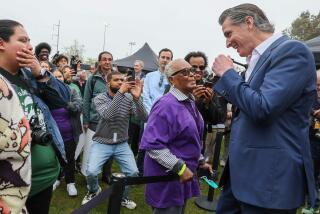Notre Dame’s Obama flap
After Barack Obama was elected president, Pope Benedict XVI sent him a congratulatory letter. So did Cardinal Francis George of Chicago, the president of the U.S. Conference of Catholic Bishops. At the time, neither the Vatican nor the Catholic bishops were under any illusion about Obama’s opposition to outlawing abortion, a position that obviously put him at odds with the church’s agenda. That didn’t prevent them from welcoming a dialogue with the new president or offering to work with him in common pursuits.
The same can’t be said of conservative Catholics who are lobbying Notre Dame University, the best-known Catholic institution of higher learning in the country, to rescind an invitation to Obama to speak at its commencement in May and accept an honorary degree. Led by the Cardinal Newman Society, a self-appointed guardian of orthodoxy, the protesters seem to believe they are more Catholic than the pope.
The argument against Obama’s appearance at Notre Dame is that it’s incompatible with the church’s opposition to abortion and the use of embryonic stem cells in medical research. But a similar charge could have been leveled against the 2001 appearance at the university of George W. Bush, who as governor of Texas presided over scores of executions. Although the church’s objections to the death penalty aren’t as absolute as its opposition to abortion, U.S. bishops have taught since 1980 that “the legitimate purposes of punishment do not justify the imposition of the death penalty.” For them, the death penalty is also a “life” issue.
Catholics in America -- clergy and lay people alike -- are divided over whether the church should equate political support for legal abortion with moral approval of the procedure. In 2004, the archbishop of St. Louis threatened to deny Holy Communion to Democratic presidential nominee John Kerry, a pro-choice Catholic. Other bishops, including Cardinal Roger M. Mahony of Los Angeles, leave it to pro-choice Catholic officials to search their own consciences.
Of course, the issue at Notre Dame isn’t whether Obama, a Protestant, should be welcomed to a Catholic Communion rail. It’s whether a distinguished university should ban a speaker with whom it disagrees or engage him, as the pro-life evangelical pastor Rick Warren did when he invited Obama to speak at his church. Notre Dame’s decision reflects a historic development in the way Catholic universities are viewed by Catholics and non-Catholics alike.
Thanks in part to the Second Vatican Council, the last four decades have seen a once- unthinkable integration of Catholics into the American mainstream. As part of that development, Catholic universities have attracted students and faculty of all religious backgrounds by combining their identification with the church with the principle of open discussion.
Sometimes that requires a balancing act, and there are voices in the church advocating what they see as the “re-Catholicizing” of institutions such as Notre Dame or Georgetown University. These critics took some comfort in a speech by Benedict last year in Washington, in which he told Catholic educators that academic freedom couldn’t justify a Catholic university’s endorsement of “positions that contradict the faith and the teaching of the church.”
But the pope’s mandate is consistent with the position adopted by Notre Dame in the Obama controversy. The university’s president, the Rev. John Jenkins, has emphasized that the invitation to Obama “should in no way be taken as condoning or endorsing his positions on specific issues regarding the protection of life, such as abortion and embryonic stem cell research.”
It isn’t just Catholic universities that sometimes need to be reminded of the importance of uninhibited debate. In 1974, students at Yale drowned out a speech by the physicist William Shockley because they objected to his views about race and intelligence. In 2007, President Lee Bollinger of Columbia University rightly resisted calls that he cancel an appearance by Iranian President Mahmoud Ahmadinejad -- and then “welcomed” Ahmadinejad with a litany of denunciations. The attempt to have Notre Dame disinvite Obama is only one example of the impulse to censor dissenting views in an environment that should welcome them. In resisting that campaign, Notre Dame has kept faith with both its religious and its academic missions.
More to Read
A cure for the common opinion
Get thought-provoking perspectives with our weekly newsletter.
You may occasionally receive promotional content from the Los Angeles Times.










